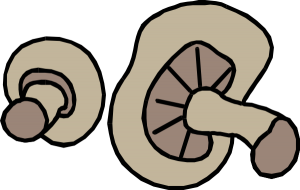This was a blog entry I posted in a work community forum (Smarter Eating), and I thought it was worth sharing on my regular, public blog:
———————————
Many of us tend to conceive of issues like health at the microscopic level, that is, what effects do particular substances have on us, specifically on our cells and tissues? For example, how does a diet high in cholesterol affect our blood vessels (answer: atherosclerosis) or why do we need Vitamin A (answer: eyesight/immune function)? These are certainly valid considerations and a good understanding of nutrition has led many to conclude that most of us humans need a diet primarily sourced from plants, including a wide variety of vegetables, fruits and grains.
However, if you consider “health” from a macroscopic level, expanding our consideration outside of our bodies and immediate circle of friends and family, to include the well-being of human beings across the globe, plants, animals and the environment, the case for a plant-based diet is even more compelling.
1. Plant agriculture is much more efficient than animal agriculture. Most farmed animals simply convert plant energy into their own energy (for moving or reproduction), just as humans do when they eat plants. After significant quantities of plants are eaten, to then convert the animals (or their reproductive fluids) into human food products, requires a lot more energy and resources (to grow the plants, to store and transport the plants, not to mention the significantly larger quantity of plants & plant energy compared to the relatively little animal energy available for animal agriculture). This wasn’t such a problem 100 years ago, but with 7 billion humans on the planet (and expected to keep growing), animal agriculture is completely unsustainable. Continue reading “Smarter Eating: Micro vs. Macro”


 As a pedantic, mushroom-hating former scientist, it drives me crazy when some restaurant has a “mixed vegetables”dish that contains mushrooms.
As a pedantic, mushroom-hating former scientist, it drives me crazy when some restaurant has a “mixed vegetables”dish that contains mushrooms.